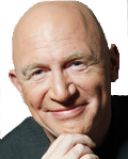
Creativity
Steve Jobs and the Culture of Creativity
A remarkable life that shows importance of cultural pluralism and openness
Posted January 4, 2012
Walter Isaacson's magisterial biography of Steve Jobs is the portrait of one of the great geniuses of our time. Isaacson towards the end of the book says that Jobs "became the greatest business executive of our time, the one most certain to be remembered a century from now. History will place him in the pantheon right next to Edison and Ford. More than anyone else of his time, he made products that were completely innovative, combining the power of poetry and the processor." (p 566)
A large proportion of the many reviews of Isaacson's book have focused on Jobs' many deep character flaws and strange quirks from his faulty personal hygiene to his tendency to brutally humiliate people in public. Much of this was known before Isaacson's book; if anything its emphasis on these, often unsavory, details provides us with the certainty that, even though the biography is authorized, and partially based on forty interviews and conversations with Jobs, it is a book written with full authorial independence - with Jobs' full approval.
Isaacson sees Jobs and his life as a paradigm for innovative leadership, and one of his guiding themes was what type of culture fosters innovation. His answer is "The creativity that can occur when a feel for both the humanities and the sciences combine in one strong personality was the topic that most interested me in my biographies of Franklin and Einstein, and I believe that it will be a key to creative innovative economies in the twenty-first century." (p247).
Jobs' life is therefore not only a great modern saga; it also carries important lessons for countries, cultures and educational systems that want to foster innovation. Israel's only major engine of growth is its R&D sector, particularly high-tech and bio-tech, and its major resource is innovative entrepreneurs, scientists and engineers, and we should carefully listen to what Job's life has to teach - not only for the sake of Israel's economy, but for the sake of its general culture.
Steve Jobs, born in 1955, was a product of the 1960s in California. He kept saying that Bob Dylan was one of the key influences on his life, and he made it a point to create a set of Dylan's complete recordings that could be bought on iTunes, the online shop that transformed and saved the music industry in the new millennium's first decade.
Another key influence on Jobs' life, thought and career was Zen. In his temperament, outbursts of rage and flaring intensity he certainly did not embody the Zen ideals of equanimity and balance. But the aesthetics of Zen indeed shaped his vision of Apple's products. Jobs' always spoke of his experience of Kyoto's Zen Gardens as one of the great influences on his life. It drove his passion for design that was simple, clean, uncluttered and aesthetically compelling - a hallmark of his creations from the iMac to the iPhone and iPad.
Jobs was totally intransigent when it came to his product's design: he would not tolerate any aesthetic flaws and would drive sometimes drive his engineers to despair insisting that they find solutions to what seemed intractable problems. But he would generally get them to deliver; his single-minded sense of purpose would lead them to deliver what they thought to be impossible.
Isaacson's biography is remarkable because it doesn't shirk great philosophical questions of our time. One of its recurring themes is the clash between two philosophies: the openness of the product exemplified by Microsoft and even more by Google versus Jobs' insistence on total control over the product and vertical integration.
This was played out in the great rivalry and cooperation between Jobs and Bill Gates and their differing philosophies. Gates early on opted for keeping Microsoft's products open: its operating systems could be used on many types of hardware. In the 1990s it seemed that Gates' approach was the clear winner, when Microsoft Windows came to dominate the market, running on more than ninety percent of all personal computers.
In the first decade of the new millennium, the tables were turned. Jobs' insisted on vertical integration and Apple's total control over its products, from the software through the hardware and the shopping experience. The result was a compelling aesthetic, and a synchronization between all aspects of the user-experience. This philosophy led Apple to overtake Microsoft as the technology sector's, and briefly the world's, most valuable company.
Of course this doesn't mean that Jobs' philosophy is uniquely right: it has its upsides and downsides, and Google is successfully pursuing the philosophy of open access, transforming all our lives along the way. The beauty of the competition between these two philosophies is that we, the end-users are enriched by both.
One of the key lessons of Jobs' truly remarkable life is the overwhelming importance of the value of the culture of liberty. Jobs' life and achievement was made possible by an environment that created a space in which a variety of cultural traditions could coexist, compete and interact.
Jobs could experiment and experience endlessly; he could gradually combine various cultural, aesthetic and technological currents of his time into a compelling conception, technologically, aesthetically and in an innovative business concept.
An important aspect of Steve Jobs' legacy and one of the compelling lesson's of Isaacson's beautifully written biography is that creativity can only be fostered in a culture that takes liberty seriously. This lesson must be remembered at all times and in all places.



